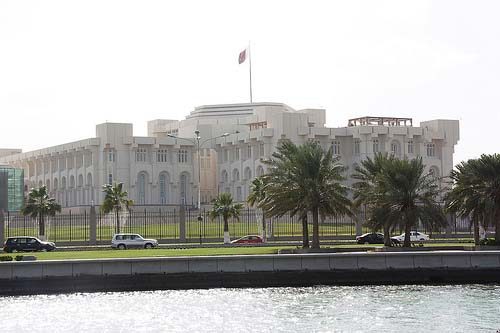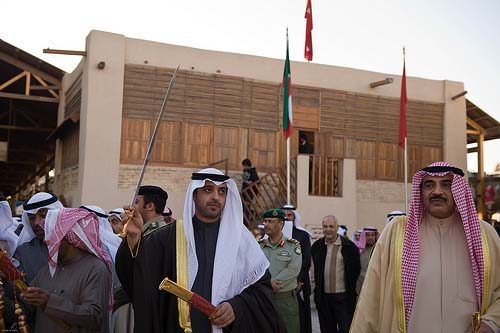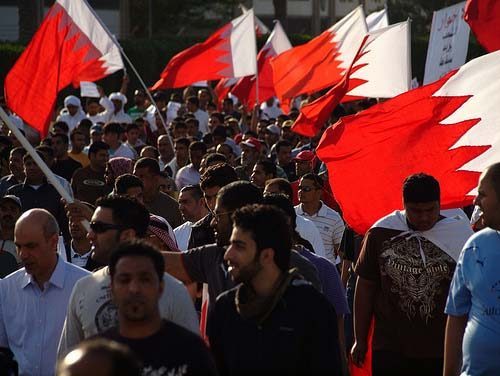
The Arab Spring isn’t over yet. Yesterday, Kuwait’s prime minister warned that police would use force if protesters continued to flout a new law that prohibits gatherings of more than 20 people. But as tensions mount there and continue to spill over in Bahrain, deputy director for the Royal United Services Institute in Qatar David B. Roberts explains why we’ll likely remain untouched by the region’s revolutions.
Bahrain, Kuwait…Qatar?
While media outlets find it convenient and practical to generalize when it comes to reporting on “The Gulf” or the now 24-month-long “Arab Spring,” these terms can be problematic as they simplify complex issues.
For example, take the states of the Gulf Cooperation Council (GCC): Saudi Arabia, Qatar, the UAE, Bahrain, Kuwait, and Oman. On the surface, these countries have many similarities in terms of tribal structure, intermingling of families, cultural traditions, religious beliefs, and economic and political systems.
But the differences between the nations, and even in cities within one country, are stark. Riyadh and Jeddah – let alone in comparison to somewhere like Muscat – are poles apart and – to engage in a different sort of generalization – Kuwaitis are far more politically garrulous than their Qatari cousins.
So, will the similarities mean that the Arab Spring will sweep across all Gulf States, or will some difference impede its passage? Let’s take a case-by-case approach.
Kuwait

Kuwait has relatively a long, mercantile history. One author even dubbed Kuwait “the Marseilles of the Gulf” – such was the port-city-melting-pot nature of the place. This helped give rise to a rich and relatively independent merchant elite that exists alongside the ruling Al Sabah family.
This dynamic in which the ruling family must contend with other powerful players has set the feisty tone of politics in Kuwait. In contrast, Doha was never as cosmopolitan or as prosperous a city and consequently no merchant class could develop independent of Al Thani power. This meant that politics was, as it remains today, dominated by the Al Thani family.
Today the merchant families in Kuwait have mostly “joined sides” with the Al Sabah against those dubbed “the opposition.” Much of the opposition are referred to as tribal and Islamist in nature and were enfranchised later on in the 20th century when the Al Sabah needed more support. Initially they were grateful to the Al Sabah for giving them a passport and supported them in Parliament.
More recently, however, they have realised that they are in the majority in Kuwait and now feel that they deserve more power. In the ( annulled) previous election, they won 34 of the 50 seats, demanded nine Cabinet posts (of sixteen), were offered three and took none.
The battle lines are thus set broadly between the older, established, richer elites and the “younger” interlopers looking to get their share and upset the status quo.
Bahrain

While there has historically been tension of varying degrees between Sunni and Shia Muslims in Bahrain, the key dividing line was largely a socio-economic one. Though there was certainly a correlation between Sunni and Shia in terms of greater opportunities for Sunni Bahrainis, the tension was typically not manifest in an overtly sectarian way.
The Arab Spring changed that entirely. To some degree this was a state-sanctioned ploy to specifically and overtly use the sectarian angle as an effective way of corralling support against the uprisings in Bahrain. Though they may have been successful in halting any significant changes, this came at a terrible cost not only in terms of deaths and arrests but in terms of profoundly polarizing Bahraini society.
Qatar

Qatar possesses none of these key dynamics. It has neither a highly active public, political debating culture; latent sectarian concerns; nor deep and widespread socio-economic disparities among citizens. Moreover, it has a tiny indigenous population and prodigious riches to shower upon them.
Yet Qatar’s stability is not obtained through this alone, for its leadership has been putting Qatar on the international map in largely positive ways for over a decade now. This has changed the international perception of Qatar from having no reputation whatsoever – or being “known for being unknown” – to now being known for its mediation, Al Jazeera, sporting initiatives and supporting various factions in the Arab Spring. Overall, I believe that most Qataris are – if anything – pleased with this burgeoning reputation.
Just like every other state on Earth, Qatar does have its problems and its population has its grumbles. The pace of change and apparent “Westernisation”concerns some, while others want more transparency and a say in how the country is run.
By virtue of its proximity and its fraternal ties, Qatar will remain deeply concerned and interested in what transpires as its fellow GCC States wrestle with the Arab Spring. But barring a black swan event or a sea-change in attitudes, Qatar will remain as insulated as ever from the Spring.
Thoughts?
Credit: Top photo by Xavier Bouchevreau; second photo by KuwaitElections2012; third photo by Al Jazeera English; last photo by Sean Knoflick







